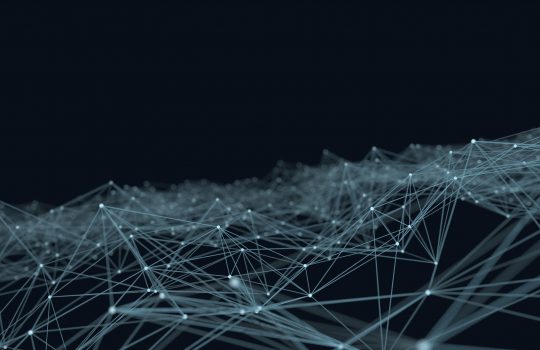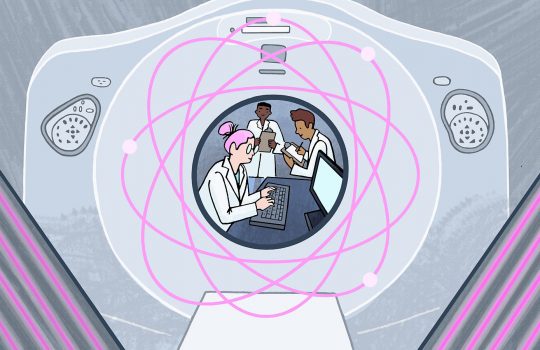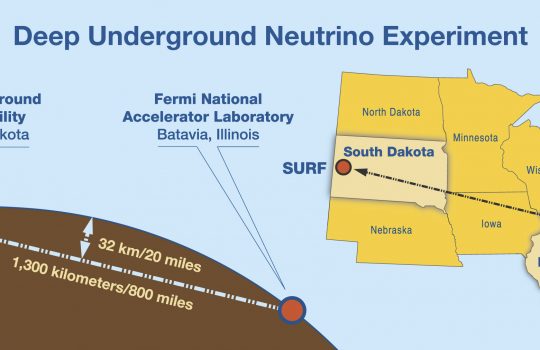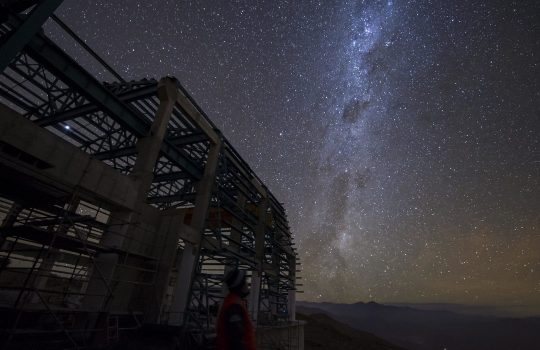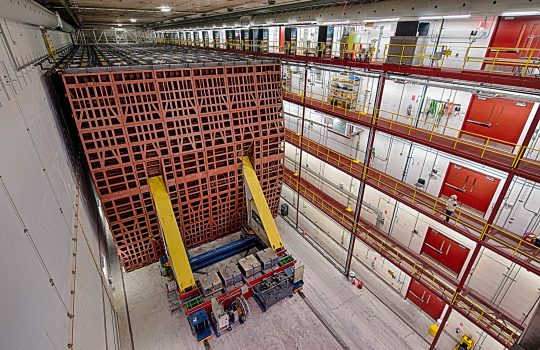How do you make the world’s most powerful neutrino beam?
- Deep Underground Neutrino Experiment
- DUNE
- LBNF
- Long-Baseline Neutrino Facility
- neutrino
- Sanford Lab
- Sanford Underground Research Facility
- South Dakota
The Deep Underground Neutrino Experiment will tackle some of the biggest mysteries in physics — and to do so, it will need the most intense high-energy beam of neutrinos ever created. Engineers are up to the complicated task, which will need extreme versions of some common-sounding ingredients: magnets and pencil lead.


